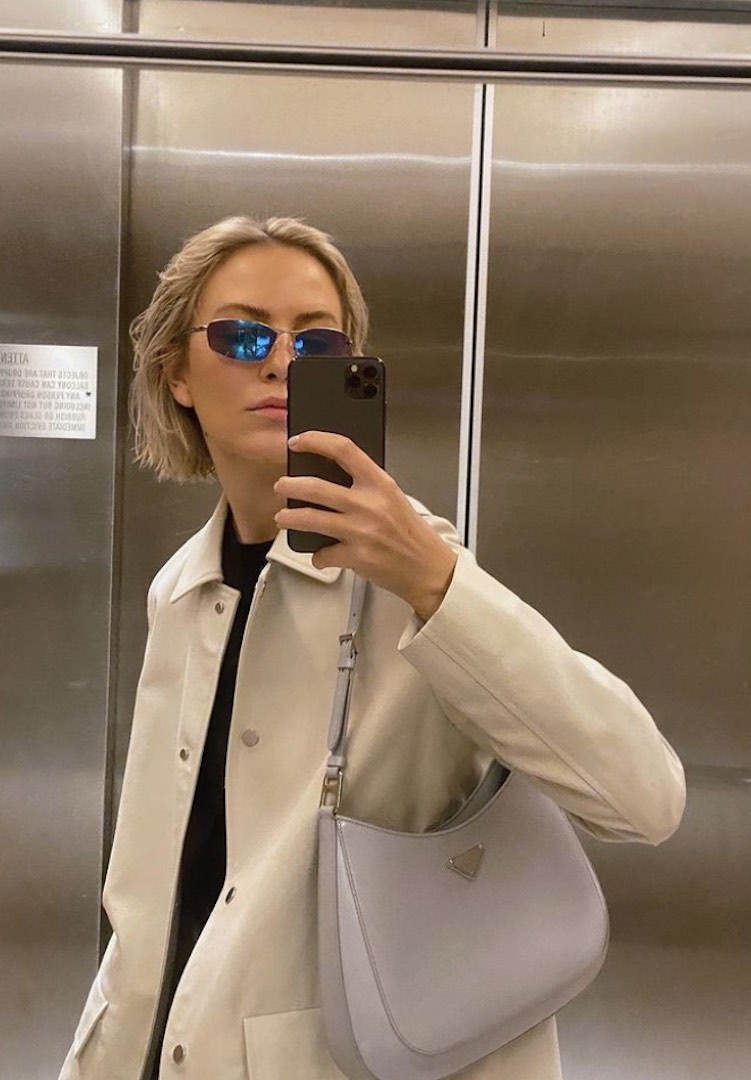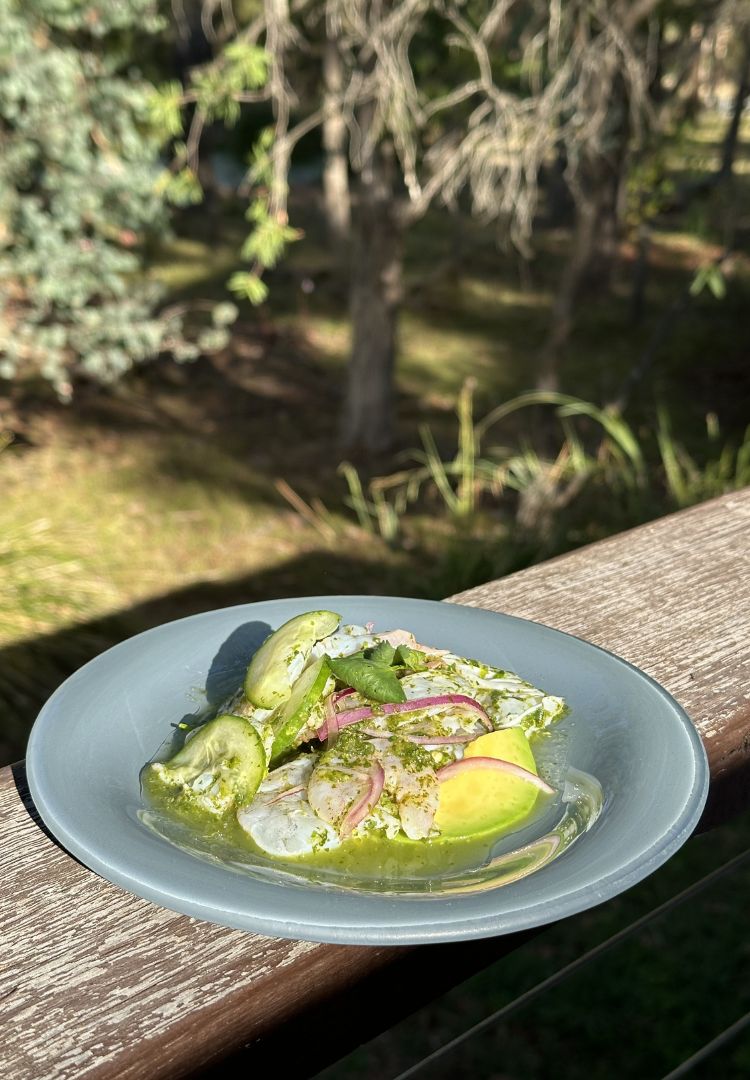Why don’t we talk about eating disorders like we do addiction?
IMAGE VIA @gabbois/INSTAGRAM
Words by Asheda Weekes
Content warning: This article discusses eating disorders, alcoholism and drug addiction.
This year marks a decade since I was diagnosed with an eating disorder. If you told me at seventeen that I’d still be dealing with the mental gymnastics of this illness, I would eye-roll and say, “This is only a rough patch, I’ll be fixed in no time!”
The thing is, despite two voluntary hospitalisations, months of group therapy and hours of one-on-one sessions with therapists, the illness still deeply affects me. What I’m grateful for is that I never had to go into involuntary admission. I never had to have a feeding tube through my nose, experience prolonged heart problems or become bedridden and close to dying.
For more content like this, tap through to our Life section.
I know some wonderful people who’ve been through it all. And I’ve known some wonderful people who haven’t, but still have had the whisper of this illness follow them around. This illness has a debilitating competitive edge, where there’s both frustration and envy you feel towards another person’s eating disorder. It’s a game of perpetual comparison, where layers of depression, anxiety and malnourishment cloud your thoughts.
And if you don’t present with the standard idea of what an eating disorder is, many people mistakenly believe you can’t possibly have one (as if one person’s eating disorder is more valid than anothers). I grieve for my young adult years. The rumination paralyses me. My eating disorder has swallowed thousands of dollars, lost me friendships, a sense of fun, spontaneity and so much mental energy. For a long time, I played things too safe in life, thinking I was protecting myself.
But in fact, I was protecting the illness. I often wonder where the eating disorder ends and I begin – do I innately lack an adventurous edge, or is it something I’ve grown accustomed to? The relationship I have with my eating disorder is still the most intimate I’ve ever had. It took me a while to accept its chronic nature. Just because you’ve regained the weight doesn’t mean it goes away; it’s written itself into my daily thought patterns. I list out what I’ll eat, manipulate mirrors to create body dysmorphia and fight the ever-present mental hum telling me to restrict, binge, purge.
The hum is niggling. It’s irritating. It clouds my attention. It can soften with distraction, or grow into a blinding bellow when aggravated. To me, it feels addictive. It’s something I’ve spoken about a lot in therapy – that a lot of my energy each day goes into fighting the hum. And because of that, it feels as though everything else I do becomes mediocre. When reflecting on the way this illness has shaped my life, I was struck with a thought: why don’t we talk about eating disorders like we do addiction?
Perhaps it’s coming from a punitive place, but it frustrates me that there’s still a polarising attitude when it comes to eating disorders. Yes, they’re now part of conversations online and publications like Fashion Journal have covered some amazing stories that have resonated with me and many readers.
But eating disorders are still stigmatised. Even for me, learning my eating disorder was a symptom of my anxiety and depression made me bump it down a few notches in its value. Primarily because it’s so much easier to talk about the latter. I felt, and I guess still feel, less shame around those compared to my eating disorder.
These are some of the grating questions I’ve been left with are: why is it easier to say ‘I’m a daily smoker’ than say ‘I’m not comfortable eating pasta’? Why can we talk about binge drinking and not food binging? Why are there plenty of alcoholics and narcotics anonymous groups made available to people? And why are these groups woven into pop culture as a norm, whereas the representation of eating disorder therapies in the media seems sparse?
Eating disorders vs. other types of addiction
To help me unpack these burning questions, I reached out to Eating Disorders Victoria (EDV) to bridge the gaps of my own knowledge about the two. Amy Woods is a Wellbeing Coordinator at EDV, and she shared some insight around the parallels and differences between eating disorders and addiction.
“Both eating disorder behaviours and addiction behaviours are coping mechanisms at their core. They do not speak to the person engaging in them, except for highlighting distress in their internal world. These types of coping skills are used because they do provide short term relief from stressors, but they also cause a lot of pain and suffering in the long term,” she explains.
“[Both] issues can result in poor physical health and malnutrition, but sufferers can also experience a sense of excitement and enjoyment when engaging in these behaviours. There are payoffs to engaging in eating disorder behaviours, just as there is with substance use. We wouldn’t do it if it didn’t give us something in return.”
However, despite their similar functions, these two illnesses do require different models of care. Though the 12-step programs associated with addiction are effective, person-centred care is the most impactful way to treat someone with an eating disorder.
“The main difference in care between eating disorder treatment and substance use treatment is that abstinence is not possible. Despite food being a consistent source of distress and an unhelpful coping skill, it is impossible to eliminate from your life. Nourishment is essential to life and re-learning how to nourish one’s self is essential to treatment. Similarly to a detox environment, some people require close medical monitoring to help renourish themselves in the early stages,” Amy explains.
We don’t talk about eating disorders the same way as addiction thanks to a variety of reasons: their media portrayal, the lack of diverse representation, internalised misogyny and fatphobia. Alcoholism and drug use are perceived as being more male-dominated illnesses, and perhaps for this reason they’re seen as more socially acceptable to discuss than their eating disorder counterpart.
“People refuse to believe that an eating disorder is present unless they can see physical evidence of it, unaware that eating disorders don’t have a ‘look’ and come in all shapes, sizes and gender identities. The assumption that eating disorders are a women’s issue makes it incredibly difficult for men or members of the trans and gender diverse community to ask for support, as society is already telling them that they aren’t ‘eligible’ for that diagnosis,” Amy tells me.
The representation of eating disorders in the media
As Amy tells me, unfortunately, “eating disorders are still an under-recognised serious illness”. Though there are excellent evidence-based treatments across the country, it still requires “primary care providers to be aware of eating disorders and able to make the diagnosis, and for clinicians to have access to specialist training and guidance around the management of these complex illnesses. Weight bias and weight stigma are still issues in the health care sector and this can result in doctors potentially missing the signs of an eating disorder,” Amy says.
When I spoke to Alex Cowen from The Butterfly Foundation, she agreed that public discourse around eating disorders is a real issue. She often has conversations with people who aren’t aware an eating disorder is a mental illness, and instead presume it’s a lifestyle choice.
“It’s seen as a problem that affects young, White females, usually from an affluent area with the presentation of anorexia,” she reveals. But this isn’t factually correct: there are eight types of eating disorders impacting 4 per cent of our population. 37 per cent of sufferers are male, and LGBTIQA+ people are at a greater risk of disordered eating behaviour, with 23 per cent of this group having the diagnosis at some stage.
As the Communications Manager at The Butterfly Foundation, Alex believes that the “media’s perspective plays a massive role in how the wider community” views this chronic illness. One of the key components of her role is changing the preconceived notions people have about eating disorders by making sure they’re accurately depicted in the media. This is why the Mindframe National Media Initiative, made in collaboration with the National Eating Disorders Collaboration, developed media guidelines to ensure accurate media portrayal of eating disorders.
And I’ve barely touched on the relationship between eating disorders and social media – the glamorising, copycat behaviours and stereotypes once brazenly displayed in magazines have found a new home on the internet. “It’s really important for people to realise that [social media] can be quite damaging to body image and eating disorders. [But] if you take Instagram or whatever platform away you still have a society that is obsessed with beauty standards,” Alex shares. So if social media is smoke and mirrors, it’s really the wider fixation on body image we need to systematically break down.
The Butterfly Foundation is making strides in its initiatives to do just that, including the recent launch of its Body Bright campaign for primary schoolers and Body Kind for families. This preventative approach aims to promote healthy attitudes and behaviours towards the body, eating and physical activity so people can thrive at school and in life. It’s a strength-based, evidence-informed program developed to challenge views and beliefs that can lead to an eating disorder. It’s something I wish I had growing up.
Another huge win for the community came in 2019 when a suite of Medicare Benefits Schedule items was introduced to support the model of care for eating disorders. Those eligible can rebate up to 40 psychological sessions and 20 dietetic sessions within a 12-month period, meaning person-centric care can be made more accessible.
With eating disorder presentations skyrocketing over the last 18 months due to COVID-19, EDV is pushing for more funding of its broader services across Victoria, as well as for long-term reform in Victoria’s mental health care system. It’s also working towards representing the diversity within eating disorders. A key project it’s been working on for some time is increasing awareness and understanding of EDs in the Gippsland region, with the goal to bolster support available in regional Victoria.
I originally went into this think-piece wondering this: if groups like Alcoholics Anonymous are widely available, why don’t we have similar spaces for eating disorders and why isn’t the conversation about them more widespread? Despite the evidence-based, medical reasons why we don’t talk about eating disorders like we do addiction, it’s clear it’s more than just a mental health issue. It’s a social one. So let’s keep having the conversation.
If you or someone you know is struggling with their mental health, eating disorders or addiction, you can contact the following:
Lifeline 13 11 14
Butterfly Foundation 1800 ED HOPE (1800 33 4673)
Eating Disorders Victoria 1300 550 236
Alcoholics Anonymous 1300 222 222
Narcotics Anonymous 1300 652 820













